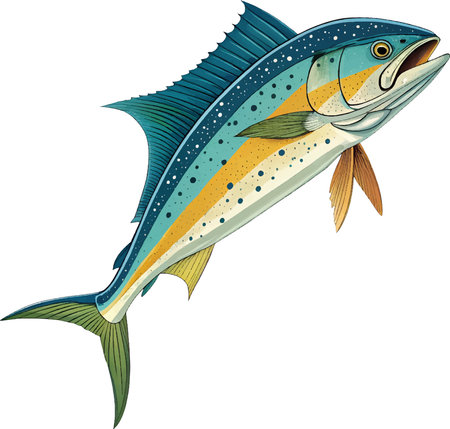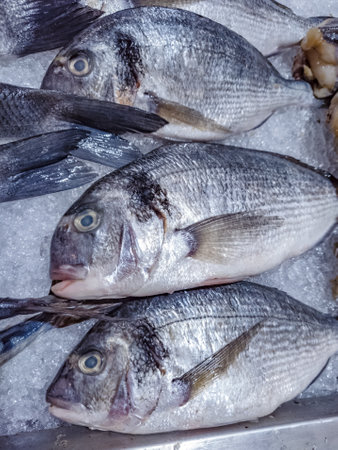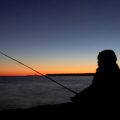Introduction to Fisheries Enforcement in the UK
If you’ve ever wandered along a British harbour, watched fishing boats bobbing on the waves, or enjoyed a classic fish and chips by the seaside, you might have wondered how all those delicious catches are managed and protected. The answer lies in robust fisheries enforcement—a critical but often overlooked part of UK coastal life.
At its heart, fisheries enforcement is about more than just ticking boxes or handing out fines. It’s about safeguarding our iconic seas for generations to come. By making sure everyone sticks to the rules, we help keep British waters teeming with life—ensuring that both local communities and marine habitats can thrive.
But why does this matter so much? Well, without clear legal limits and active enforcement, there’s a real risk of overfishing. This doesn’t just mean fewer cod or haddock for our favourite dishes; it also spells trouble for the delicate balance of marine ecosystems.
Here’s a quick look at why enforcing fishing rules is crucial:
| Reason | Impact |
|---|---|
| Prevents Overfishing | Keeps fish stocks healthy for future generations |
| Protects Marine Habitats | Helps preserve underwater ecosystems |
| Supports Local Economies | Sustains jobs in coastal towns and villages |
So, whether you’re a seasoned angler or just someone who loves a stroll by the sea, understanding how fisheries enforcement works helps us all appreciate what goes into keeping Britain’s waters both bountiful and beautiful.
2. Key Legal Limits: What Every Angler Should Know
If you’re planning to cast a line in UK waters, it’s essential to know the key legal limits before you start reeling in your catch. The UK takes fisheries management seriously to protect local stocks and maintain sustainable angling for generations to come. Let’s break down the fundamental rules every angler should have on their radar.
Minimum Catch Sizes
One of the most important regulations is the minimum size limit for different fish species. If your catch falls below these sizes, it must be returned to the water immediately—no exceptions! This helps juvenile fish survive and reproduce, keeping populations healthy.
| Species | Minimum Size (cm) |
|---|---|
| Bass | 42 |
| Cod | 35 |
| Mackerel | No minimum |
| Pollack | 30 |
(Always check with local authorities, as some regions may have different or updated limits!)
Permitted Species
The UK has a list of protected species that anglers are not allowed to target or keep. Some fish, like shad and sturgeon, are off-limits due to their vulnerable status. It’s also worth noting that certain shellfish—like lobsters and crabs—have their own specific restrictions.
Commonly Protected Species in UK Waters:
- Sturgeon
- Shad (Allis & Twaite)
- Angel Shark
- Common Skate
Seasonal Restrictions
To help fish populations recover during breeding times, there are closed seasons for some species and areas. For example, river coarse fishing is generally off-limits from 15 March to 15 June in England and Wales—so don’t get caught out!
| Species/Area | Closed Season Dates |
|---|---|
| Coarse Fish (Rivers) | 15 March – 15 June |
| Bass (Certain Areas) | Varies – Check Local Byelaws |
A Quick Word on Bag Limits and Gear Restrictions:
You’ll also find daily bag limits for some species (especially bass) and rules on what gear you can use. These can differ between recreational and commercial fishing, so always double-check before heading out.
If you stick to these legal basics, you’ll enjoy your time on the water—and avoid an awkward chat with a Fisheries Enforcement Officer!

3. Whos in Charge? The Role of Enforcement Agencies
If you’ve ever wondered who keeps an eye on our seas and makes sure everyone’s playing by the rules, you’re not alone! The UK has a network of agencies dedicated to fisheries enforcement, each with its own patch and powers. Here’s a quick guide to the main players you’ll hear about when it comes to enforcing fishing laws and safeguarding our marine resources.
Main Fisheries Enforcement Bodies
| Agency | Area of Responsibility | Key Roles |
|---|---|---|
| Marine Management Organisation (MMO) | England & UK offshore waters | Licensing, compliance checks, vessel monitoring, prosecutions |
| Inshore Fisheries and Conservation Authorities (IFCAs) | Inshore waters (up to 6 nautical miles) in England | Local byelaws, patrols, education, local fisheries management |
| Scottish Fisheries Protection Agency (part of Marine Scotland) | Scottish waters | Patrols, inspections, enforcement of Scottish fishing regulations |
| Welsh Government Fisheries Enforcement Team | Welsh waters | Compliance checks, advice, enforcement actions in Wales |
| Department of Agriculture, Environment and Rural Affairs (DAERA) | Northern Ireland waters | Monitoring, licensing, enforcement in NI coastal areas |
A Day in the Life: What Do These Agencies Actually Do?
You might spot MMO officers at ports checking catches or see IFCA patrol boats zipping along the coast. Their daily work includes everything from inspecting fishing gear for legal compliance to running workshops for local fishers about new rules. They can issue fines or even seize illegal equipment if someone’s breaking the law.
Your Local Contact Point
If you’re ever unsure about what’s allowed where you fish—or want to report something fishy—these agencies are your go-to. Each region has its own contact details and helplines for questions or concerns. It’s all part of keeping British seas sustainable for future generations!
4. How Enforcement Happens: From Spot Checks to Reporting
If you’ve ever been out angling along the British coast or casting a line on a tranquil lake, you might have wondered how fisheries rules are actually enforced. The UK takes its fishing limits seriously, and enforcement officers—often called Fisheries Enforcement Officers (FEOs)—are out and about making sure everyone’s playing fair. Here’s a closer look at what you might encounter, with real-life examples and tips on what to expect whether you’re at sea, riverbank, or bustling harbour.
Spot Checks: What Really Happens?
Picture this: you’re enjoying a sunny afternoon at your favourite fishing spot when an officer in uniform approaches with a friendly “Alright, mate?” They’ll usually ask to see your rod licence if you’re freshwater fishing, check your catch for size and species, and sometimes have a quick look through your tackle bag. These checks aren’t just for show—they help protect fish stocks and ensure everyone’s sticking to the legal catch limits.
Typical Spot Check Process
| Step | What Happens |
|---|---|
| Initial Approach | The officer introduces themselves and explains the reason for the check. |
| Licence Check | You’ll be asked to show your rod/fishing licence (if required). |
| Catch Inspection | Your catch is measured and identified to ensure compliance with minimum size and bag limits. |
| Tackle Review | The officer may inspect bait, hooks, or nets for prohibited items. |
Real-Life Encounters at the Docks
Down at the harbours, enforcement is just as lively. Officers often walk along the quayside or pop onto boats as they dock, exchanging banter while checking crates of freshly caught fish. For instance, one angler in Whitby shared how officers used portable scales and rulers to check his cod—turns out it was just under size, so back it went into the North Sea! Most encounters are positive and informative, with officers keen to educate rather than penalise first-timers.
Common Outcomes of Checks
| Outcome | Description |
|---|---|
| No Issue Found | You’re free to carry on fishing—maybe with a tip or two from the officer! |
| Verbal Warning | If it’s a minor mistake (like misreading size charts), you might get let off with advice. |
| Caution or Fine | For serious breaches (taking undersized fish or using banned gear), you could face fines or even prosecution. |
Reporting Suspected Breaches
If you spot dodgy goings-on—like someone keeping illegal fish or netting without a licence—you can report it anonymously via the Environment Agency’s hotline. The process is straightforward, and every report helps keep local waters healthy for everyone.
5. Penalties and What Happens if You’re Caught Out
If you’re thinking of bending the rules while fishing in the UK, it’s definitely worth knowing what’s at stake! The UK takes its fisheries enforcement seriously, and there are real consequences if you’re caught exceeding legal limits or breaching other regulations. Here’s an insight into what could happen and how offences are dealt with.
The Consequences of Breaking Fishing Limits
First off, getting caught breaking the rules isn’t just a slap on the wrist. Depending on the severity, you could face anything from a warning to a hefty fine – or even prosecution for repeat or serious offences. Local Inshore Fisheries and Conservation Authorities (IFCAs) and the Marine Management Organisation (MMO) are tasked with investigating breaches, so don’t be surprised if you’re stopped for an inspection while out enjoying the British coastline.
Common Penalties for Fisheries Offences
| Offence | Possible Penalty | Who Enforces? |
|---|---|---|
| Exceeding catch limits | Fines up to £50,000 Seizure of equipment/catch |
MMO / IFCA |
| No valid fishing licence | On-the-spot fines Court appearance for repeat offences |
Environment Agency / MMO |
| Fishing in restricted areas/seasons | Confiscation of gear Potential prosecution |
IFCA / MMO / Environment Agency |
| Using banned gear or methods | Equipment seizure Fines Licence suspension |
IFCA / MMO |
What to Expect If You’re Caught Out
If you’re approached by an enforcement officer, stay calm and cooperate—refusing to comply can make things much worse. Officers will usually check your catch, equipment, and licences. If they find an infringement, they’ll explain your rights and outline next steps. For minor breaches, you may receive a formal warning or a Fixed Penalty Notice (FPN), which allows you to pay a fine rather than go to court. More serious or repeated offences can lead to prosecution, where the courts may issue larger fines or even ban you from fishing altogether.
The process is designed to be fair but firm—so if you play by the rules, there’s nothing to worry about! Ultimately, these penalties are in place to protect fish stocks and keep our waters healthy for future generations of anglers.
6. Community and Conservation: Why It’s Worth Sticking to the Rules
If you’ve ever strolled down a British harbour or joined a chat at the local fishmonger’s, you’ll know how much pride communities here take in their coastal heritage. But beyond the picturesque scenes and tasty fish and chips, there’s a deeper reason why following fisheries regulations really matters. By sticking to legal limits, we’re not just ticking boxes for officials—we’re helping preserve the UK’s unique marine life for future generations and supporting our neighbours whose livelihoods depend on healthy seas.
The Ripple Effect of Following Regulations
Every time an angler or commercial fisher abides by catch limits and respects closed seasons, it sends out positive ripples across the community. Here’s how:
| Action | Benefit to Fish Stocks | Benefit to Community |
|---|---|---|
| Respecting size and bag limits | Allows young fish to mature and reproduce | Sustains long-term fishing opportunities |
| Reporting catches accurately | Improves stock assessments for better management | Ensures fair access for all fishers |
| Avoiding restricted areas | Protects vital habitats (like spawning grounds) | Keeps local biodiversity thriving for tourism and research |
A Shared Responsibility
Conservation isn’t just for scientists or government agencies; it’s something we all play a part in. In many coastal towns, local fishing clubs work closely with enforcement officers to share knowledge, report concerns, and help educate newcomers about sustainable practices. This spirit of cooperation is what gives British fisheries their resilience.
The Real Payoff: A Vibrant Marine Future
At the end of the day, sticking to the rules means more than avoiding fines or awkward run-ins with inspectors. It’s about ensuring that future generations can enjoy a day out angling, see bustling harbours full of life, and taste fresh-caught British seafood. So next time you cast a line or buy your supper from the quayside, remember—you’re part of something bigger. Let’s keep our seas thriving together!

